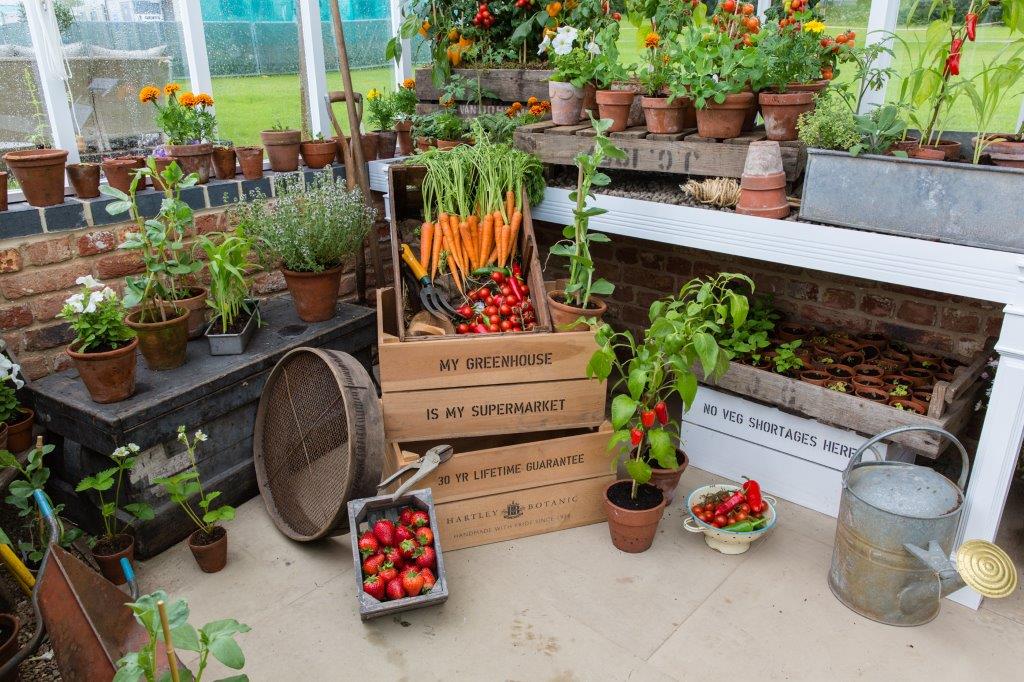
Gardening makes me move about. It makes me stretch and lift and breathe fresh air and all of those other things that make me feel just that little bit healthier at the end of a day gardening than I do at the end of a day sat in front of the computer. But let’s face it no matter how many bags of compost I lift from car to polytunnel, or how may watering cans I lift above my head to water my hanging baskets, I’m not really heading out there to sculpt my abs. I very much am out there for peace of mind though. The physical benefits are not the most important health benefits I get from gardening. It is the mental benefit that I really feel at the end of an afternoon outside. Gardening resets. It gives mental space and room for thoughts to ramble, but all while hands do something repetitive, often gently creative, something undemanding but always massively satisfying. For me it is the perfect thinking activity, and I often find that if I’m stuck for ideas then an hour in the garden will see them flooding in. But more than that it just gives my brain a space to relax, in a mentally exhausting world. I’m a better, calmer, happier, person (and a much nicer parent) after a bit of gardening.
I’m not the only one who feels this way. There is an increasing interest in the good that gardening can do for our health. The National Gardens Scheme has recently joint produced a report with The Kings Fund called ‘Gardens and Health’, which looks at the impact that gardens and gardening have on health and wellbeing, and explores what the NHS and wider health and social care system might do to maximize this impact. Wouldn’t it make sense to use the power plants and gardens have to calm and rebalance us within healing situations? The garden show season this year too has been dominated by gardens brimming with health benefits as more and more people come to recognise the link between the two. The RHS created its own showcase garden at Chelsea Flower Show called the RHS Feelgood Garden, which was designed by Matt Keigthley for the mental benefits of sitting in a calming, beautiful outdoor space. It featured places to sit and observe nature, delicate screening from transparent plants to create a feeling of enclosure (while relieving the anxiety caused by blocked views), and flowers in delicate, calming colours. It would make the perfect garden for a hospital or hospice. The Lemon Tree Trust Garden, designed by Tom Massey, was an example of how gardens can help the mental wellbeing of people who find themselves in extremely distressing situations. It was based upon the gardens that have been created by Syrian refugees in the Domiz refugee camp in northern Iraq, people who have been forced to flee their homes by war and who have found comfort in tending plants that provide some of the colours, flavours and scents of their lost homes, even in these extremely harsh growing conditions.
Gardens and – more importantly, I think – the act of gardening provide calm where there is turmoil. It does it for me. Clearly it is not all that is needed in the most troubling situations, but gardening helps these overwhelmed people to feel at least some control over their lives and their surroundings. And it does the same for anyone who struggles at any time with feeling out of control. What a wonderful thing that there is this growing move towards gardens in medical and therapeutic situations, where they can gently work their magic. I must spend a bit more time in the garden myself.


